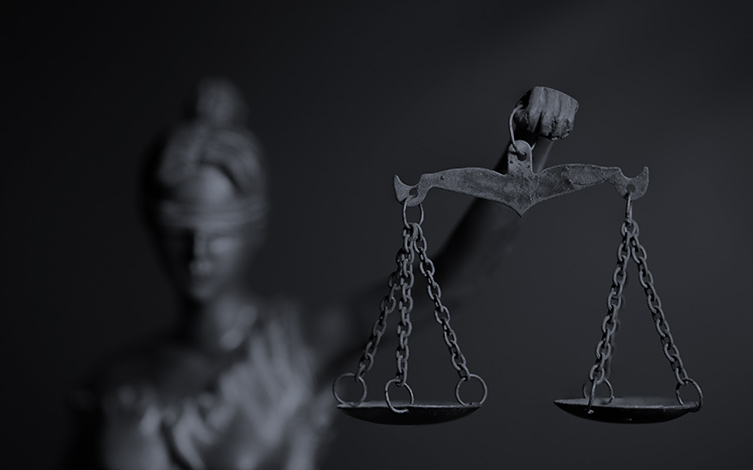We’re all legal realists now, I suppose, well aware that judges’ political and personal backgrounds are important. We rarely read an article about a federal court decision on a controversial subject – the Trump administration’s travel ban, the gerrymandering decisions – that fails to mention the party affiliation of the judge who wrote it and identify the President who made the appointment. The assumption seems to be that if we know a judge’s political affiliations, we also know how he or she is going to rule.
I want to argue against this hyperrealism. It’s too cynical; if we really buy into it, we end up undermining the idea that law ever can be objectively applied. Judges can and should make decisions that they personally and politically disagree with, even loathe. Anyone who’s spent a day in any court knows that law in action is not the same as law in the books, and that even the law in the books can be manipulated. But conceding these points are not equivalent to conceding that law is simply power politics, dressed up in robes to conceal the class bias or racism or sexism that provides the true rationale for the decisions.
It was Attorney General Jeff Sessions that spurred me to write about this subject – specifically, Sessions’s recent decision assigning one of the Justice Department’s most experienced hate crimes lawyers to assist in the prosecution of a man charged with murdering a transgender high school student in Iowa last year. This surprised a lot of people, especially after Sessions reversed the Obama administration’s policies encouraging schools to allow transgender students to use the bathrooms that fit their gender identities, and announced that the Justice Department would no longer contend in court that federal sex discrimination statutes protected gay and transgender people against discrimination at work.
Jeff Sessions is ordinarily one of the last people that I’d defend, but I think his position here is entirely consistent. In particular, I think a judge whose politics and personal beliefs tilted to the left could write a strong decision holding that the sex discrimination statutes do not prohibit employment discrimination against gay and transgender people without calling into question his or her personal liberalism. It is hard to argue persuasively that when Congress passed the Civil Rights Act in 1964, it intended that the prohibition of discrimination on the basis of “sex” extended to bar discrimination on the basis of sexual orientation and gender identification as well. Prohibition of discrimination against LGBT people simply was not on the national agenda then – and I suspect that if it had been expressly raised, it would have been defeated. In contrast, Congress expressly amended the federal hate crime statute to protect LGBT individuals; by acting aggressively to enforce that law, Sessions is simply acting consistent with his testimony in his confirmation hearings.
I want to see the federal civil rights laws prevent discrimination against gay and transgender people, but if I were deciding a claim seeking to extend those laws to provide that protection, I would write a decision that I personally disagreed with and reject the claims. There are two main reasons why. The first is pragmatic: in our system of deciding cases through written opinions that must explain their reasoning and rely on precedent to justify the result, it’s essential to find a principled basis for decision stronger than “our side wins.” Advocates of unchecked presidential executive power – for example, those who cheered President Obama’s use of “a pen and a phone” to reach results that Congress had refused to legislate – are much less enthusiastic when the opposition comes to power and uses the legal tools created by their predecessors to achieve its own political goals. The same warning applies to result-oriented judicial decisions; beware creating a rhetorical weapon that your adversaries can use to destroy the gains that you obtained when you had majority political power.
This is the point where hyperrealists and radicals claim we need to drop the pretense and recognize that law is just another arena for the exercise of political power, and therefore formalistic fictions like “fidelity to precedent” and “Congressional intent” must yield to the need for political change. I counter that even taking into account gross imbalances of economic power, pervasive racism and sexism, the rule of law exists and must be respected. I can’t put it better than did historian E. P. Thompson – himself a Marxist – in his 1975 classic Whigs and Hunters:
“[T]he rule of law itself, the imposing of effective inhibitions upon power and the defence of the citizen from power’s all-intrusive claims, seems to me to be an unqualified human good.”
There’s little left of the rule of law when my side is in the minority but can achieve any result it seeks through litigation, and when we regain majority legislative power, we reject the opposition’s efforts to use the same reasoning we deployed to get the judicial decisions we wanted. If we undermine the ideal of an objective rule of law, if we believe judges should never write opinions that contradict their own political beliefs, if like Roper in A Man For All Seasons we’d “cut down every law in England” to get at the devil, we shouldn’t be surprised that when the laws are gone and the devil turns to come after us, there is no safe place to hide.



